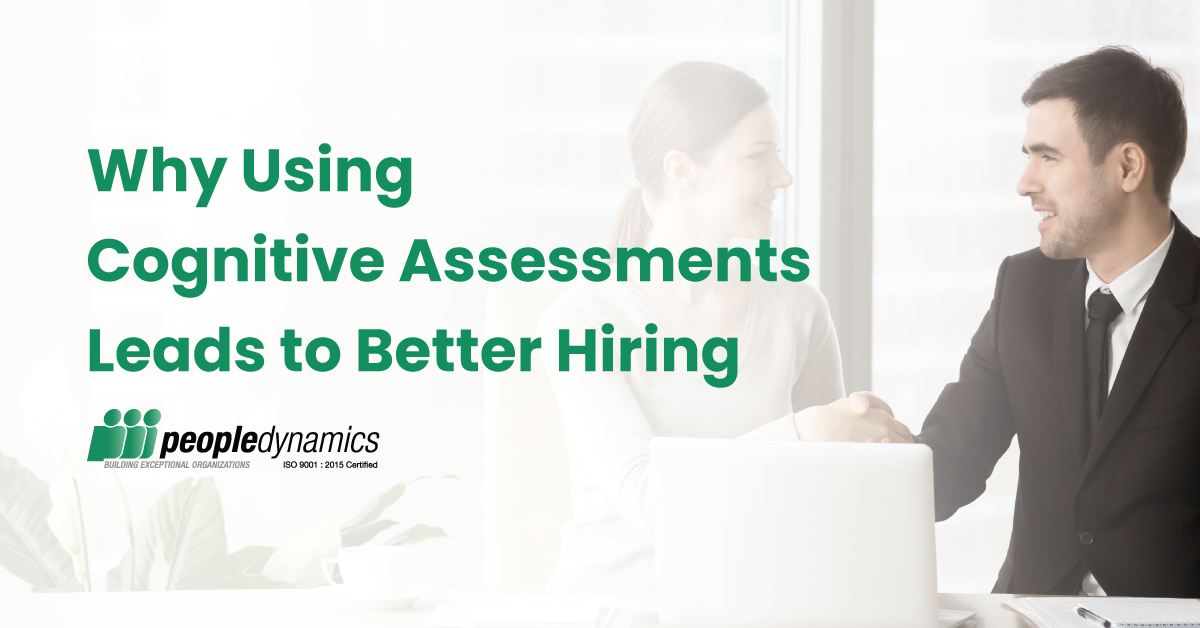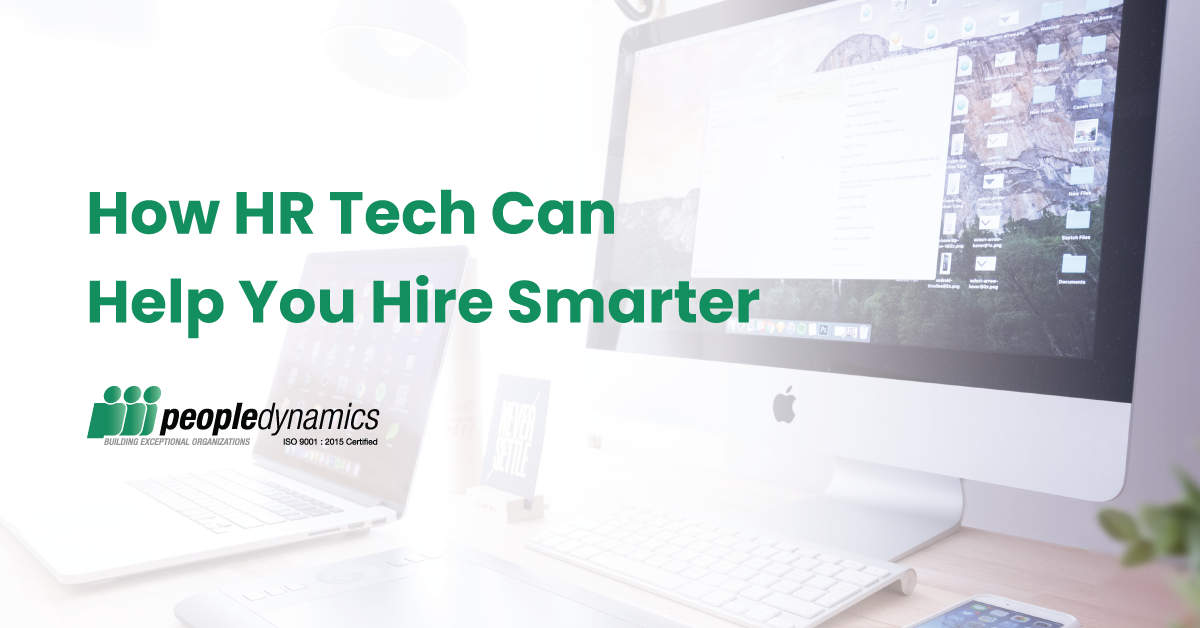Many experienced hiring managers believe that they can get an excellent grasp of a candidate’s skills through a traditional interview process. However, multiple studies have shown that interviews can be misleading. Because humans, even as we try to avoid showing it, are naturally-biased creatures.
And some HR professionals struggle to make genuinely balanced and objective decisions about who to hire. This problem can be particularly acute if the hiring manager will work directly with the person they are interviewing.
To prevent this problem, you can use more objective authorities to assist decision-making—like cognitive assessments. Research has shown that this type of prescreening test can be a much more accurate predictor of a candidate’s ability to do a job well when compared to interviews or the job experience listed on a resumé.
Deciding When to Use Cognitive Assessments
In some cases, especially at high-profile employers who receive hundreds of applications for their job openings, cognitive testing belongs at the beginning of the recruitment process. Employers ask their HR team to perform a résumé sifting and review. Once they have decided whether a candidate meets their criteria or not, the candidate is sent forward for cognitive testing as part of the prescreening process before an interview.
Some employers may also prefer to use cognitive assessments after narrowing the applicants to a final few. For example, if the hiring manager or the team is struggling to choose between two potential employees for the job, cognitive tests can be a great way to help make the decision.
Usually, though, cognitive tests are part of the prescreening process. With even the most basic of interviews taking at least half an hour and many organizations favoring long, multiple-stage hiring processes to find the best-fit talents, cognitive prescreening can immensely reduce the volume of people going through selection. It allows you, the employer, to do this without the risk of missing out on the best candidate for the job.
How Using Cognitive Assessments in Prescreening Work
One of the best things about cognitive prescreening is that apart from a few minutes to register a candidate for a test, you barely need to involve yourself in the process. The applicant can take the test at home in their own time, and you get easy-to-interpret results. After this, you can begin the interview stage with information about a talent’s potential already in your hands.
An excellent cognitive prescreening process can also lead to more effective and productive interviews. The tests can give insight into a talent’s skills, weaknesses, and areas they may need to develop. They allow you to spend more time to have a construction discussion on the insights regarding a candidate’s potential.
Cognitive Prescreening From the Candidate’s Point of View
Your potential employees don’t view prescreening processes as burdensome. Even Fortune 500 companies such as Google and Amazon adopt them to ensure robust and fair recruitment.
Candidates are more aware than ever before that bias, unconscious or otherwise, can hurt their chances of being hired for jobs suited for them. Utilizing a valid and reliable cognitive test for your recruitment will assure candidates that the process is trustworthy and rigorous.
You, as the employer, need to be transparent with the candidates about how the assessment works and how you will use the results. For example, share practical information such as how long the test will be and the system requirements to take it.
Your applicants may also want to know a few hiring process-related insights, like how long it will take for them to get a response. Another prescreening component you may need to be transparent about is result evaluation. Do you have a cut-off score to determine who will move to the next step? Or will you be reviewing the results altogether at a later date? Make these things clear to candidates before the prescreening takes place.
It’s also essential to explain the coverage of your cognitive assessments. Sharing this information enables your applicants to perform on equal footing and at their best. The more comfortable and confident candidates are when they take the test, the more likely they showcase an accurate picture of their abilities.
Tool Spotlight
People Dynamics offers the following locally-developed, online cognitive assessments utilized by thousands of local, national, and multinational corporations:
Basic Mental Ability Assessment (BMAA)
The BMAA is a test that measures an individual’s cognitive capabilities as demonstrated on critical skills needed for entry-level positions. This assessment also indirectly measures communication, computation, analyzing, and problem-solving skills.
Abstract Reasoning Assessment (ARA)
The ARA is a culture-fair, non-verbal test that assesses cognitive abilities through matrices to minimize language and educational bias.
Critical Thinking Assessment (CTA)
This assessment measures higher-order thinking and reasoning skills. It also measures analytical skills, problem-solving skills, and the ability to recognize patterns and trends in given data.
Profiles Ability Profiler (PAP)
This cognitive assessment evaluates critical skills needed for specialized and technical positions. It also indirectly measures attentiveness to details, communication skills, computation skills, analyzing, and problem-solving skills.
With the competitiveness in the recruitment market growing, companies will inevitably need to find more effective ways to look for and hire the best talent. Using cognitive assessments can substantially improve your selection processes.




